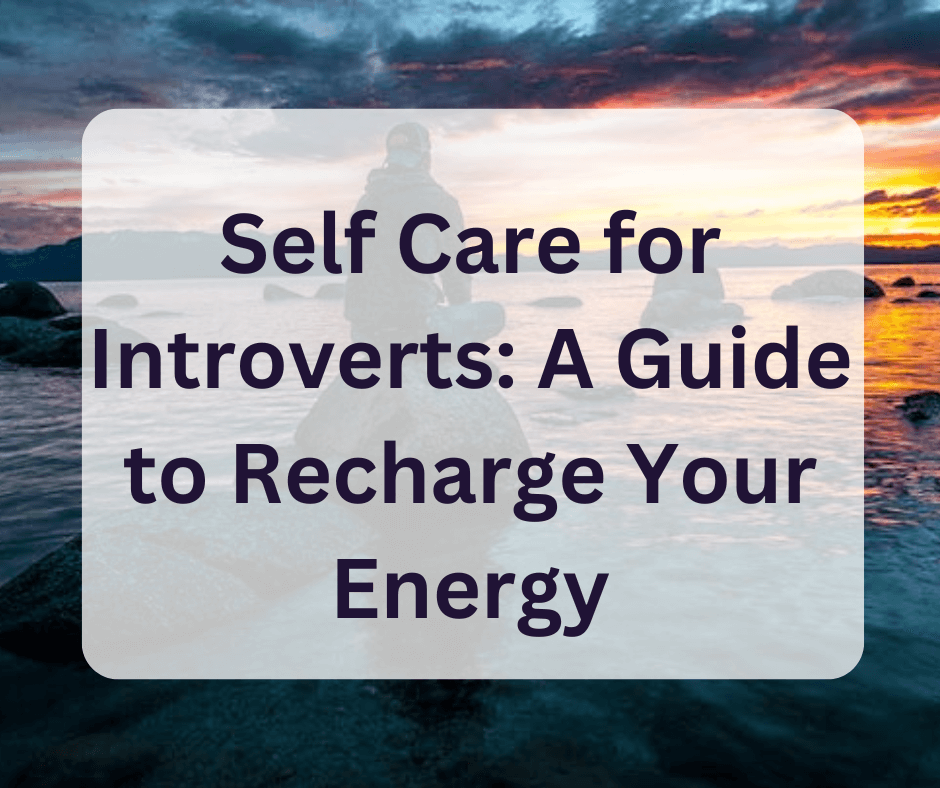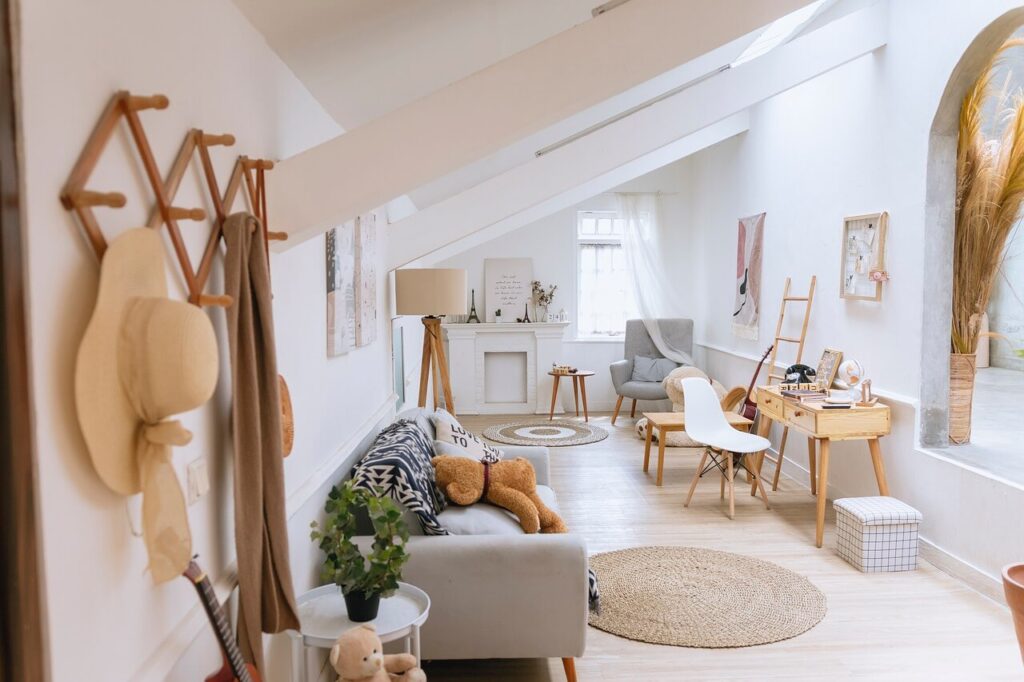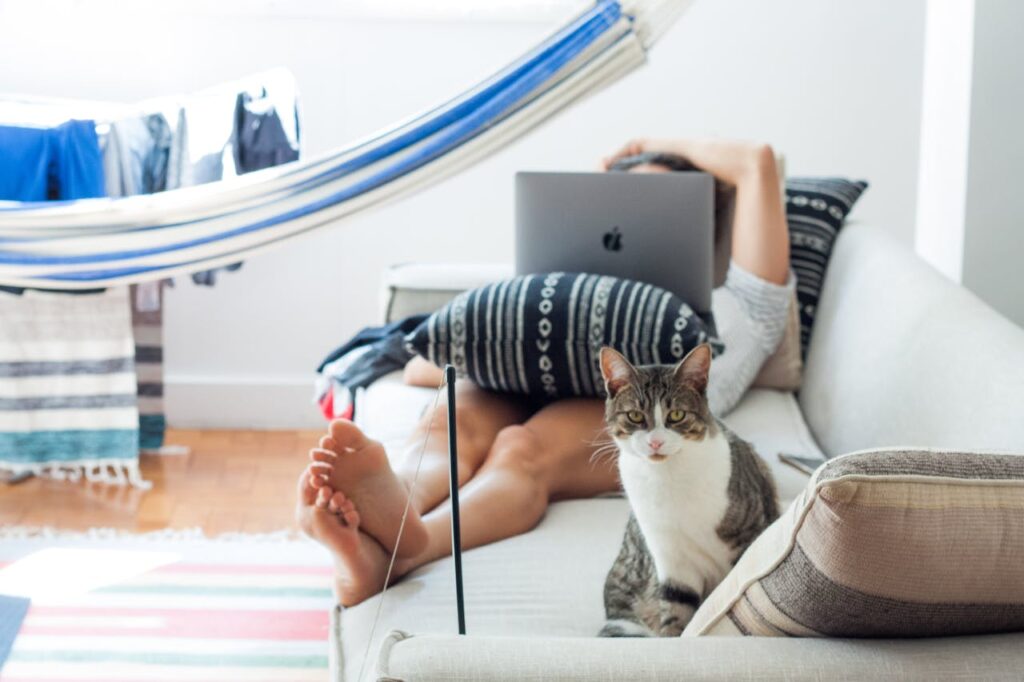Did you know that between 30-50% of the global population identifies as introverted?
Yet in our fast-paced world, many introverts feel drained by social expectations that don’t align with their natural tendencies. Our society, our systems are designed to reward extroverted people and behaviours, which can be very frustrating and exhausting for a natural introvert.

This is why self care for introverts is important: we need to prioritise our emotional well-being in order to function and thrive in this world.
If you’re an introvert too, this guide will help you create a self care routine that honors your personal needs.
Create Your Introvert-Friendly Sanctuary
A deal-breaker for me as an introvert is creating a cozy, pleasant and clutter-free environment at home. This is, after all, my sanctuary whenever I need an energy re-fill. So where do you start?
1. Use Lighting to Create a Warm Environment
First things first, lighting is absolutely crucial. If you have harsh overhead lights, they will be basically screaming at your nervous system. Switch over to a mix of warm-temperature lamps strategically placed around the room. You can even invested in some smart bulbs, which can be dimmed from your phone.
2. Use Sound for Self Care in Your Introvert Sanctuary
Sound management is another secret weapon for creating a proper sanctuary. While complete silence works for some introverts, I’ve found that having a bit of ambient noise helps create that cocooned feeling.
From soft classical music, to ambient, to natural soundscapes – there are so many options to choose from. And basically every streaming service out there has got you covered.
3. Remove Clutter from Your Sanctuary
You may have overlooked it so far, but visual clutter can drain your energy too. Make it a habit to put everything you use back in its place. And if it doesn’t have a place, it’s time to assign it one. I know, creating new habits takes you out of your comfort zone, but this one is so rewarding! And takes no time at all. Just stick to one rule: ‘everything must have a home’.
You can use woven baskets that hide away all the bits and bobs that used to scatter across your surfaces. When everything’s in its place, your mind actually feels clearer. Just give it a go, you’ll love the results.

4. Adopt Plants to Enrich Your Environment
Plants can become your non-demanding roommates. They provide just enough life to make the space feel dynamic without requiring any social interaction. You can start with the nearly un-killable ZZ plant. Once you’re comfortable with that, you can slowly build up your confidence with more challenging green mates.
They help purify the air too, which is brilliant for those long stretches when you’re enjoying your solitude.
Setting Healthy Boundaries Without Guilt
An absolutely essential skill that you need to master, is saying “no” without the fear of disappointing others. As an introvert focusing on self care, you have to learn that setting boundaries isn’t just about protecting your energy; it’s about respecting your own needs as much as you respect others’. It can be anxiety-inducing at first, turning down those after-work drinks or explaining why you couldn’t make it to yet another crowded birthday party.
The breakthrough moment in my self care for introverts journey came when I started treating my social energy like a mobile phone battery. You wouldn’t expect your phone to work without charging it, right? So why do we expect ourselves to be constantly “on”?
I’ve developed this system where I block out recovery days in my calendar after big social events. They’re non-negotiable, just like any other important appointment.

Another skill I learnt, is saying no without giving elaborate excuses. You don’t need to explain why you can’t make it. Your time is your own, and you have a right to it. If the other person doesn’t accept this and demands an explanation, it’s their problem and they need to work on their own boundary issues.
As soon as you get enough time and space to recharge, you will understand that by honouring your needs, you are actually being a better friend, colleague, and family member. And when you do show up for social situations, it’s because you want to be there. You can be present and energised, not just a zombie running on social fumes.
Navigating Social Situations While Honouring Your Needs
If you are an introvert focusing on your emotional self care, you need to learn to socialise on your own terms, rather than trying to match the energy of your more extroverted friends. Observe how you feel before and after social events. Take the time to know yourself. And then adopt new habits to make your experiences less draining, and don’t forget about recovery!
Here’s a little trick I use for social events: I am completely honest about my exit strategy. No more making up elaborate excuses to leave early and then feeling guilty for lying, or being afraid that people can see through it. Instead, I’m upfront about my timeline from the start: “I can stay until 9, then I need to head off.” It’s brilliant because it sets expectations and gives you a guilt-free exit. And as a bonus, most people actually respect you more for being clear about your boundaries.
Another strategy you can use if you are an introvert on your self care journey, is “quality over quantity socialising.” Instead of trying to chat with everyone at a party, focus on having two or three meaningful conversations. Look for a quieter corner and have a proper catch-up with someone interesting. These deeper chats are more energising, and people tend to remember these genuine interactions more than small talk anyway.
And here’s another thing to keep in mind: it’s perfectly fine to take little breaks during social events. Stepping outside for some “fresh air,” or offering to help the host in the kitchen can give you those crucial moments to reset. Sometimes, five minutes of peace is all you need to recharge enough to dive back in. It’s not antisocial – it’s smart energy management.
Solo Activities That Rejuvenate Your Spirit
1. Dive Into a Good Book
One of my favourite solo activities is diving into a good book. There’s something magical about getting lost in another world, where I can forget my worries and immerse myself in someone else’s story.

And before you say you don’t real like books, hear me out: maybe you haven’t been reading the right ones. Your goal, in this self care journey, is to feel good. So go for genres that inspire you. This isn’t homework, you can choose to read what you like. If you like romance, go for it. If fantasy helps you escape and stimulates your imagination, this is your genre. Find something you enjoy.
You don’t have to be an avid reader to make this work; even a few pages can make a difference.
2. Get Out in Nature
Another activity I cherish is walking in nature. I love heading to a nearby park and letting the sounds of the outside world wash over me. It’s a great way to clear your mind.
The sights and sounds of nature have a rejuvenating quality that’s hard to beat. Just being outdoors can lift your mood and help you recharge. You can take your camera along to capture little moments.
3. Get Creative
Creative pursuits are also a fantastic way to engage in self care for introverts. Activities like painting, drawing, or writing in your journal are a great way to escape daily life. Even if the end result isn’t a masterpiece, the process itself is freeing.
So, if you’re an introvert looking to recharge your spirit, consider carving out time for these solo activities. You might just find that they bring a sense of joy and restoration that you didn’t even know you were missing.
Conclusion
While taking time for yourself is important if you are an introvert, social interaction is also important. Don’t fall into the trap of isolating yourself! Embracing your introverted nature isn’t about becoming a hermit, it’s about finding the perfect balance that allows you to thrive.
You can read more on what is social self care and its benefits here:
By implementing these self care strategies, you’ll build a lifestyle that honours your need for solitude, while maintaining meaningful connections. Start small, be patient with yourself, and watch as your energy and well-being transform.

